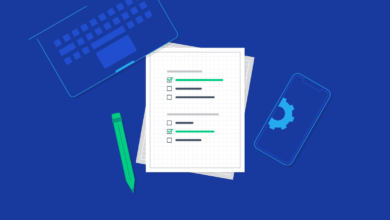Top Tips for Preparing Your Child for a Smooth Kindergarten Transition

The transition to kindergarten is a momentous step in a child’s life. It’s a time of excitement, exploration, and yes, sometimes a few jitters for both parent and child. As the big day approaches, you can play a crucial role in ensuring a smooth and successful kindergarten experience for your child.
Let’s get started!
Top Tips for Preparing Your Child for a Smooth Kindergarten Transition
Here are some top tips to help you prepare your little learner for the world of academics, social interaction, and independence that awaits them in kindergarten.
- Early Learning Activities at Home
While kindergarten marks the official start of formal education, fostering a love for learning can begin much earlier at home. Engage your child in age-appropriate activities that stimulate their cognitive development and curiosity. Read books together regularly, sing songs, and encourage pretend play.
Simple activities like sorting toys by color or size, building with blocks, and drawing pictures all contribute to important early learning skills like problem-solving, hand-eye coordination, and color recognition. These foundational skills will prepare your child for the more structured learning environment they’ll encounter in kindergarten.
- Encouraging Social Interaction and Emotional Intelligence
Kindergarten is a social learning experience. Children learn valuable lessons about sharing, taking turns, and navigating friendships. To prepare your child for these social interactions, create opportunities for them to play with other children.
Enroll them in playgroups, organize playdates, or visit local parks and playgrounds. Talk to your child about emotions and how to express them appropriately. Role-playing scenarios can help them practice how to ask for help, resolve conflicts, and make friends.
- Developing Routines and Fostering Independence
Kindergarten introduces a structured daily routine. Helping your child develop routines at home can ease the transition. Establish consistent bedtimes and wake-up times, designate specific times for meals and playtime, and create a bedtime routine.
Encourage your child to take on age-appropriate tasks like picking out their clothes or packing their backpack. Developing a sense of independence will boost your child’s confidence and prepare them for the expectations of kindergarten.
- Visiting the Kindergarten and Meeting Teachers
Many kindergartens offer school tours or open house events for incoming students. Take advantage of these opportunities to familiarize your child with the school environment. Walking through the classrooms, exploring the playground, and meeting the teachers can help alleviate any anxiety your child might have about the first day.
If possible, introduce yourself and your child to the kindergarten teacher. This initial interaction can help your child feel more comfortable and build a positive association with their new teacher.
- Setting Expectations and Building Excitement
Talk to your child openly about kindergarten. Address any anxieties they might have and answer their questions honestly. Read books about starting school and discuss the exciting things they’ll learn and experience.
Focus on the positive aspects of kindergarten, like making new friends, learning new things, and participating in fun activities. Most importantly, celebrate your child’s milestones and achievements during this time. Your positive reinforcement will build their confidence and excitement for their upcoming kindergarten adventure.




